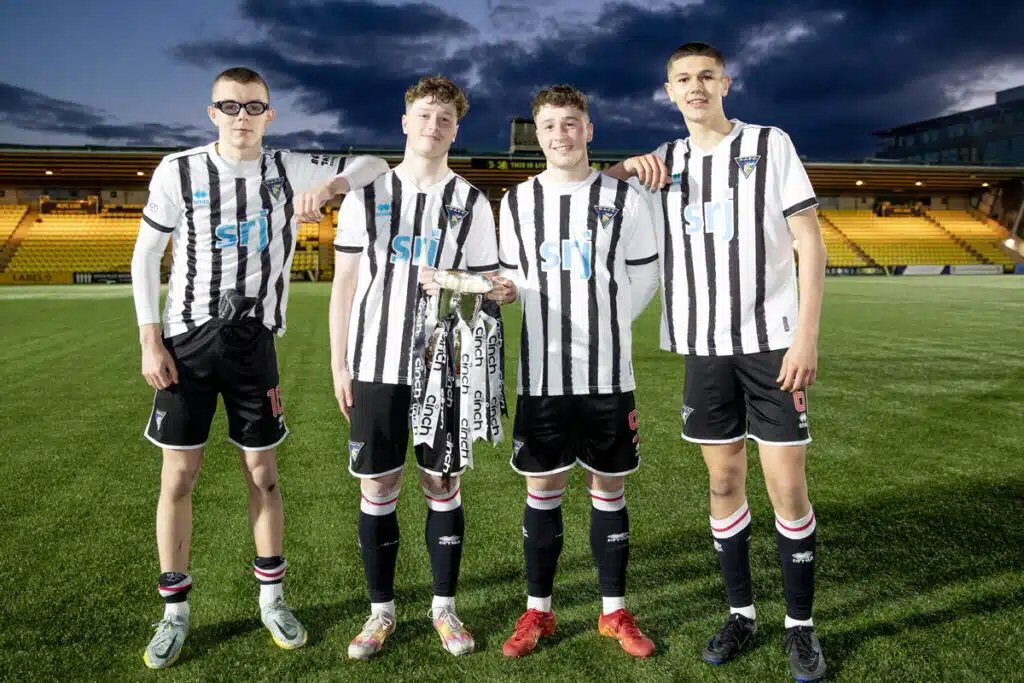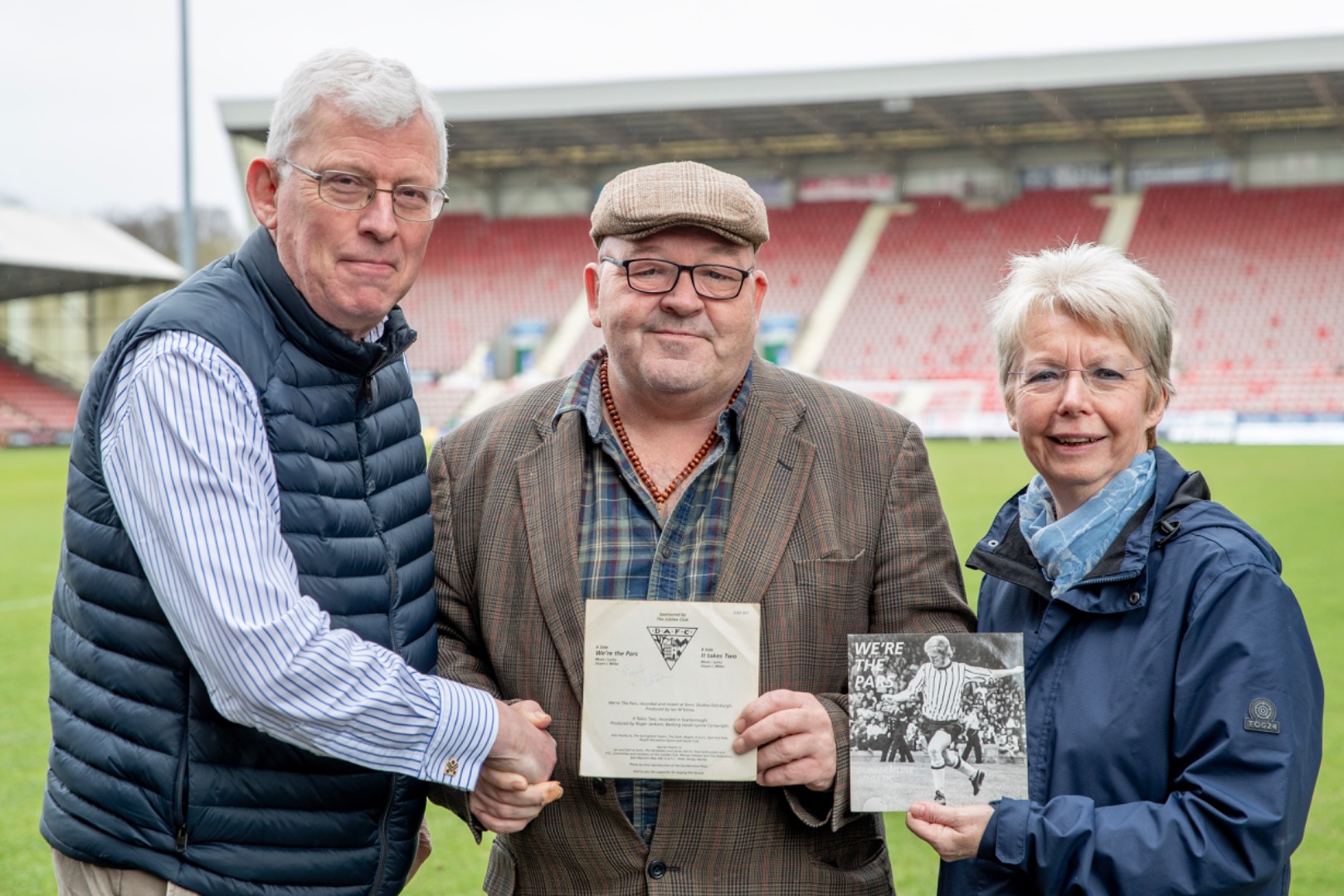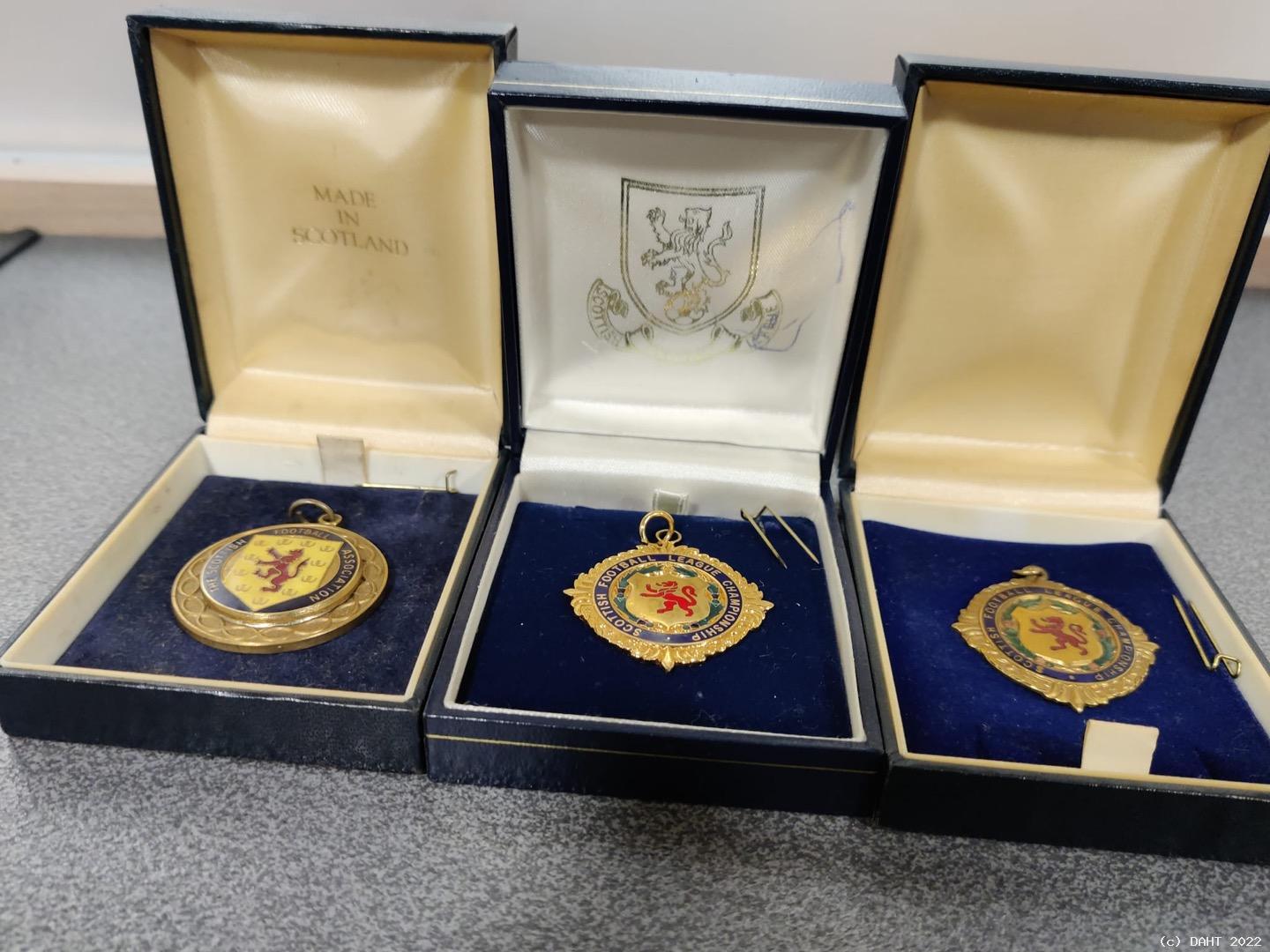Archives | George Farm 1967-1970
George Farm remains one of only two Dunfermline managers to bring a national trophy to East End Park during an illustrious career in the game that came to a sadly premature end.
George Farm remains one of only two Dunfermline managers to bring a national trophy to East End Park during an illustrious career in the game that came to a sadly premature end.
He was born on 13th July 1924 in the Slateford district of Edinburgh but as a child moved with his family to the West Lothian town of Armadale, where, after four years service with the Royal Navy, he joined the local junior club as a goalkeeper. After just three months at Volunteer Park, Farm was signed by Hibernian where injuries to his two senior counterparts saw him quickly gain his chance in the first team, helping Hibs lift the League Championship in 1947/48.
In September 1948 he was transferred to Blackpool for a fee of £2,700 and went on to spend eleven seasons at Bloomfield Road, making 503 appearances for a club that was a major force in English football. The most famous of these was the legendary `Matthews Final` of 1953 in which Blackpool defeated Bolton 4-3 at Wembley.
Farm worked hard on his game and his diligent practice made him a first class, if unorthodox, goalkeeper and gained him ten caps for Scotland.
Within a few months of joining Queen of the South in February 1960 he became player-manager, guiding the club to promotion in 1962 before doing the same for Raith Rovers five years later. However, the resignation of Willie Cunningham that summer led to him being offered, and accepting, the job at East End Park.
In his first season he led the Pars to Scottish Cup glory, a journey that began with a brilliant win over Celtic at Parkhead and ensured legendary status for both manager and players. 1968/69 saw Dunfermline finish third in the league, equalling their best ever, and also reached the last four in the European Cup-Winners Cup, a superb achievement that deserves more praise than it usually receives.
Unfortunately, this level of performance couldn`t be maintained and a terrible start to the 1970/71 season brought about a boardroom reshuffle that led to Farm`s sacking on 1st October.
It was clear that problems had been building up for a while. Farm had inherited a good squad of players but he wasn`t able to replace them with new faces of equal quality; only Pat Gardner, of all his signings, could be labelled top-class. That said, no manager, especially one at a small provincial club, could hope to overcome the transfers of Roy Barry and Tom Callaghan as well as the broken legs suffered by both Bert Paton and Jim Fraser.
Farm was a man who spoke his mind but at times his forthright views didn`t go down too well. During his tenure there were numerous transfer requests and at the start of 1970/71 three players refused to report for training.
He returned to Stark`s Park for a further three-year spell but resigned in October 1974, destined never to work in football again despite being only fifty years old. The fledgling Radio Forth employed him as a pundit but, after encouraging him to give forthright opinions, found themselves surprised by just how forthright they were!
He also, famously, spent a short time as a lighthouse keeper but it was his family that meant most to him, particularly as he was dogged by ill health in the years prior to his passing in July 2004, the day after his 80th birthday.
Related Stories
views: 714



